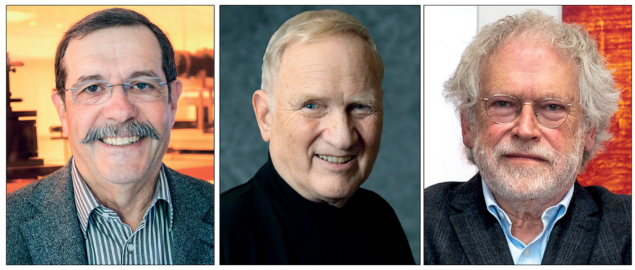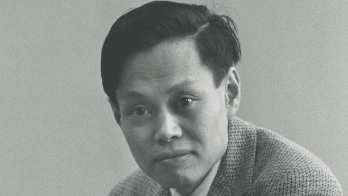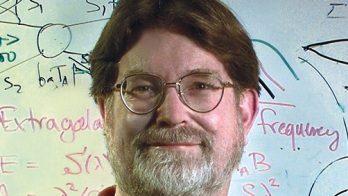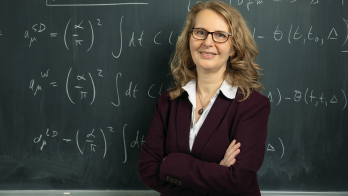
Announced on 4 October, the 2022 Nobel Prize in Physics has been awarded to Alain Aspect, John Clauser and Anton Zeilinger for groundbreaking experiments with entangled photons that open a path to advanced quantum technologies. Working independently in the 1970s and 1980s, their work established the violation of Bell inequalities – as formulated by the late CERN theorist John Bell – and pioneered the field of quantum information science.
First elucidated by Schrödinger in 1935, entanglement sparked a long debate about the physical interpretation of quantum mechanics. Was it a complete theory, or was the paradoxical correlation between entangled particles due to hidden variables that dictate in which state an experiment will find them? In 1964 John Bell proposed a theorem, known as Bell’s inequalities, that allowed this question to be put to the test. It states that if hidden variables are in play, the correlation between the results of a large number of measurements will never exceed a certain value; conversely, if quantum mechanics is complete, this value can be exceeded, as measured experimentally.
John Clauser (J F Clauser & Associates, US) was the first to investigate Bell’s theorem experimentally, obtaining measurements that clearly violated a Bell inequality and thus supported quantum mechanics. Alain Aspect (Université Paris-Saclay and École Polytechnique, France) put the findings on even more solid ground by devising ways to perform measurements of entangled pairs of photons after they had left their source, thus ruling out the effects of the setting in which they were emitted. Using refined tools and a long series of experiments, Anton Zeilinger (University of Vienna, Austria) used entangled states to demonstrate, among other things, quantum teleportation.
These delicate, pioneering experiments not only confirmed quantum theory, but established the basis for a new field of science and technology that has applications in computing, communication, sensing and simulation. In 2020 CERN joined this rapidly growing global endeavour with the launch of the CERN Quantum Technology Initiative.
Foundational work in quantum-information science was also the subject of the 2023 Breakthrough Prize in Fundamental Physics, announced in September, for which Charles H Bennett (IBM), Gilles Brassard (Montréal), David Deutsch (Oxford) and Peter Shor (MIT) will receive $3 million each.







